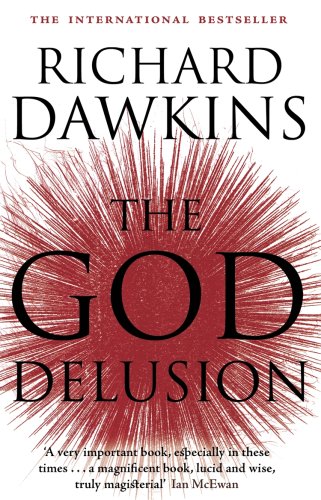| Index |
Commentary Ch 4 |
Commentary Ch 7 |
Discussion |
References |
| Summary - (Chapter Four) Why There Most Certainly Is No God |
Summary Statement: "Improbability" is a serious argument against the existence of God as both the design and anthropic arugments are improbable explanations (p. 157).
Dawkins key points from the chapter are summarized (pp. 157-9).
1. "Design" in the universe is one of the greatest challenges to the human intellect.
2. The "designer" is described by believers as "an intelligent engineer."
3. The designer hypothesis leads to the more basic question - "who designed the designer?" The answer is a statistical improbability. We need a "bottom-up" not a "top-down" argument - a "crane" not a "sky-hook." We need an argument that is grounded on earth, not suspended from the heavens.
4. The most ingenious, powerful crane so far devised is the biological theory of evolution, which includes natural selection. It was devised by Darwin (arguments from other sciences like physics are still weak.)
5. The anthropic principle entitles us to postulate far more luck in the evolutionary process than limited human intuition is comfortable with.
6. "Bottom-up" arguments are more plausible than self-defeating "top-down" ones. Thus, the factual premise of religion - the God hypothesis - is untenable.
My comment: Dawkins constructs his argument on scientific reasoning and a materialist understanding of reality. He cannot accept the existence of a realm beyond this one. Thus, arguments that entertain the existence of an "ideal" place beyond the "real" place we inhabit on earth does not make sense to him.
|
| Commentary - Chapter Seven - The "Good" Book and the Moral Zeitgeist (pp.
237-278) |
Summary Statement: The Bible may be an arresting and poetic work of fiction,
but it is not the kind of book you should give your children to form their
morals.
How can the scriptures be our guide? How can these stories provide moral role models? (pp 243, 248)
Dawkins recounts many credible examples of evil and abuse from Judeo-Christian history recorded in the biblical scriptures which give evidence of God's endorsement of sexual and gender abuse; human sacrifice; warfare; genocide; plagues on God's enemies - all reflecting clear indication of God's anger and jealousy.
We don't get our morals from the scriptures (249). Even Jesus did not base his ethics on the Hebrew scriptures, as his was based on a different standard - the Sermon on the Mount - Mt. 5-7. (250).
The New Testament fares little better than the Old Testament. Dawkins describes the evil existing in such classic Christian doctrines as original sin; the atonement; the rapture, etc.
"For good people to do evil things," said Stephen Weinberg, "it takes religion" (249).
The zeitgeist (spirit/climate of the times) cause us to move on. Human moral improvement has occurred "in spite of" not "because of" religion.
We abuse our children when: 1) we label others 2) support segregated schools 3) enforce taboos against marrying out of our own groups. |
| Summary of Discussion Notes |
Question for discussion:
Do you agree or disagree with Dawkins when he says: "Do not indoctrinate
your children; teach them to think for themselves; help them to evaluate
evidence and how to disagree with you." (264) |
 |
 Clicking the icon left will activate the e-mail on your machine and direct
your comments to us. Comments are welcome and will be posted with usual
editorial courtesies. St. David's United Church.Calgary, Alberta, Canada. Jan 2008 Clicking the icon left will activate the e-mail on your machine and direct
your comments to us. Comments are welcome and will be posted with usual
editorial courtesies. St. David's United Church.Calgary, Alberta, Canada. Jan 2008 |
